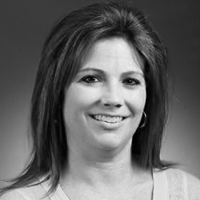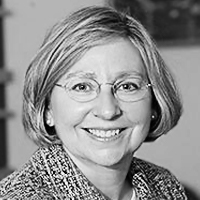In order to reduce lost to follow up and accurately monitor hearing in infants and older children who are unable to complete behavioral hearing evaluations, it is critical that the diagnostic ABR be completed efficiently and accurately. This can be confounded by difficult test environments and poor infant sleep state. This presentation will discuss difficult test environments/populations and options for ABR protocols, equipment characteristics, sedation/anesthesia options and strategies which can be utilized to optimize the ABR evaluation.
View this Course on Demand
Course Preview
Watch the first six minutes of the course. Register for immediate access to the full course, which will also appear on your Pending Courses page.
Learning Outcomes
- After this course learners will be able to describe the relationship between obtaining complete test results at the initial ABR appointment and reducing loss to follow-up rates.
- After this course learners will be able to list diagnostic ABR protocols which may help reduce test time and new types of technology which may allow for more effective/efficient ABR evaluations.
- After this course learners will be able to describe developmentally supportive positioning and touch to help infants achieve an optimal sleep state.
- After this course learners will be able to explain the importance of developing relationships with other care providers.
- After this course learners will be able to discuss case studies from environments and patient populations which are difficult to test.
- After this course learners will be able to describe techniques to complete ABR evaluations on older patient populations which are difficult-to-test.
Course created on March 1, 2017
Agenda
| 0-5 Minutes | Introduction |
| 5-10 Minutes | Difficult to Test Cases: Nonsedate ABRs: Achieving Best Infant State |
| 10-20 Minutes | Difficult to Test Cases: Nonsedate Protocol Recommendations for Maximal Efficiency |
| 20-45 Minutes | Difficult to Test Cases: Nonsedate ABR case studies (inpatient and outpatient) |
| 45-50 Minutes | Difficult Test Environments, Conditions, and People |
| 50-55 Minutes | Difficult-to-Test Cases: Use of anesthesia and sedation |
| 55-80 Minutes | Difficult-to-Interpret Cases: Hearing loss, neurologically abnormal ABR, or poor ABR evaluation? |
| 80-90 Minutes | Summary, Q & A |
Reviews
668 ReviewsPresented By

Kelly Baroch
AuD CCC-A
Kelly Baroch, Au.D. is a clinical audiologist with Cincinnati Children's Medical Center and the coordinator of the Infant Hearing Program, which she developed in 2003. She completes diagnostic hearing evaluations and sensory care plans for inpatient newborns and infants. She has given numerous state and national presentations on early identification and intervention of hearing loss in the medically complex population, auditory development in infants, and the effects of the NICU environment on sensory development. She is involved with several research projects and consults with Audiology and NICU programs nationally.
More

Gayle Riemer
MA CCC-A, FAAA
Gayle Riemer, MA, is a clinical audiologist and former Senior Clinical Director with Cincinnati Children's Medical Center. In her current position, she specializes in providing ABR evaluations on difficult-to-evaluate children, performing evaluations in operating rooms, recovery rooms, anesthesia induction rooms, ECHO labs, cardiac catheter labs, ICU, and inpatient bedsides. She is also a member of the Craniofacial Team and an audiology advisor for the International Adoption Center at Cincinnati Children's. She is involved in several research projects and manages the electronic medical record's audiology clinical documentation.
More
Gayle Riemer: Financial: Gail Riemer is employed by Cincinnati Children's Hospital Medical Center, AudiologyOnline's cooperative partner for this event. Non-financial: Geil Riemer has no non-financial relationships to disclose.
Sponsor Disclosure: This course is presented by AudiologyOnline is partnership with Cincinnati Children's Hospital.
Content Disclosure: This learning event does not focus exclusively on any specific product or service.
Course participation information
To ensure you are ready to participate, please complete our short Test Drive to prepare your computer to view the course.
NOTE: Full attendance for all courses is mandatory. Please view the entire course.
Passing an online exam and completing a course evaluation will be required to earn continuing education credit.
Live Webinars allow presenter and participant interaction. The exam and course evaluation for these courses must be completed within 7 days of the event.
On-demand courses include texts, video and audio recordings of live webinars, and multimedia formats. The exam and course evaluation for on-demand courses must be completed within 30 days of course registration.
To participate in the course, complete the exam and course evaluation, and earn continuing education credit, you must be a AudiologyOnline member. Participants must complete the entire course; partial credit is not allowed.
AudiologyOnline is committed to ensuring accessibility to the widest possible audience. We are continually improving the user experience for everyone. If you have questions, requests, or would like to report an accessibility-related issue, please email accessibility@continued.com. We will review your request and respond in a timely manner.
Visit our Contact us page or give us a call if you have questions.
American Academy of Audiology
AudiologyOnline is approved by the American Academy of Audiology to offer Academy CEUs for this activity. The program is worth a maximum of 0.15 AAA CEUs. Academy approval of this continuing education activity is based on course content only and does not imply endorsement of course content, specific products, or clinical procedure, or adherence of the event to the Academy's Code of Ethics. Any views that are presented are those of the presenter/CE Provider and not necessarily of the American Academy of Audiology.
Australian College of Audiology
AudiologyOnline courses are approved for Continuing Education Points by the Australian College of Audiology. Automatic ACAud Approval Number 20000. This course is offered for 1.5 CEP.
British Academy of Audiology
This course has been accredited with 1.5 CPD point/s by the British Academy of Audiology.
Canadian Academy of Audiology
The Canadian Academy of Audiology (CAA) supports and assists its members in the attainment of continuing education towards an individual professional development plan as required by their Provincial Regulatory Colleges and Provincial Associations. Audiology Online is an approved provider of educational activities for CAA members. Each hour of activity may be counted as one Continuous Learning Activity Credit (or equivalent) as allowed by the applicable regulatory college or association.
California Speech-Language Pathology & Audiology Board
AudiologyOnline.com is approved by the California Speech-Language Pathology and Audiology Board as a Continuing Professional Development Provider, approval number PDP 267. This course may meet the requirements for 1.5 hours of continuing education credit for audiologists as required by the California Speech-Language Pathology and Audiology and Hearing Aid Dispensers Board. The responsibility for determining whether or not this specific course counts toward an individual's requirements for license renewal is up to the individual. Please refer to the CA state board rules regarding allowable topics and self-study limits: http://www.speechandhearing.ca.gov/licensees/ce_req.shtml
International Association for Continuing Education and Training
continued, LLC, DBA AudiologyOnline, is accredited by the International Association for Continuing Education and Training (IACET). continued complies with the ANSI/IACET Standard, which is recognized internationally as a standard of excellence in instructional practices. As a result of this accreditation, continued is authorized to issue the IACET CEU. continued, LLC, is authorized by IACET to offer 0.2 CEUs for this program.
International Hearing Society
This program is approved by the International Hearing Society and its educational committee, the International Institute for Hearing Instruments Studies. To learn more about earning IHS CE Credit, click here.
Kansas Department for Aging and Disability Services
Kansas Department of Health and Environment: Approved for 1.5 continuing education clock hours for Kansas licensed Audiologists by the Kansas Department for Aging and Disability Services. Long-Term Sponsorship number LTS-S0035.
New Zealand Audiological Society
This course is offered for 2.0 Continuing Education points through the New Zealand Audiological Society.
Speech-Language & Audiology Canada
Clinically certified members of Speech-Language & Audiology Canada (SAC) can accumulate continuing education equivalents (CEEs) for their participation with AudiologyOnline. One hour of coursework equals 1 CEE. All SAC members are encouraged to participate in on-going education.